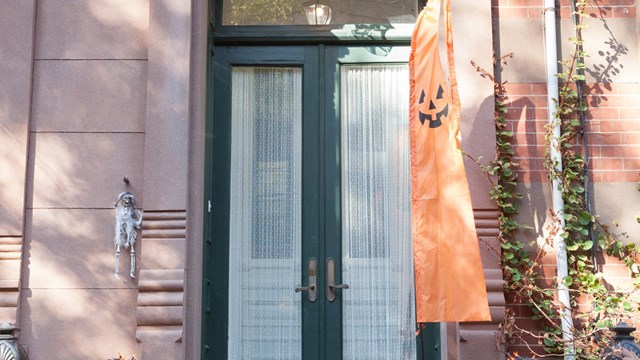We all have needs. Wants, too. In a condo or HOA, the significant needs or wants of the unit owners usually have to be routed through the board or management company. In theory—and usually in practice—this is a sound and functional system. But it’s not perfect. Next to noise complaints, the single most common grievance voiced by condo residents is that their board members and managers don’t respond quickly enough to phone calls and email messages regarding the needs and wants as related to the building or their individual unit.
"The biggest complaint I hear," says Diane Dangler, CMCA of DHD Management in Oceanport, "is that condo management companies don't return calls and don't follow up."
This issue can certainly be avoided with enough effort on the part of the board members and managing company. But residents have a responsibility, as well. It’s essential that they know what to expect from their HOA administrators and maintain realistic expectations of them and the process itself.
Living in a Paradox
Board members often feel that they're pulled in opposite directions. On one hand, they are directly involved with the operations of their home and can lead the way toward positive change. On the other hand, they have to field everyone else’s suggestions and an unending stream of problems, which can often stall or even stonewall other, more long-rage goals. Some days, it seems like everybody has an agenda, and the term "cooperative living" is an oxymoron as board members struggle between responding to residents' concerns while doing what's best for the community at large.
This is one of the reasons why a resident’s complaint—about a noisy roof vent, say—may languish unaddressed for much longer than the resident would like. According to management pros, maintenance-related and other physical questions about an HOA or condo building tend to cause tension because residents often don't fully understand what their HOA administrators are obliged to address versus what is their own responsibility as homeowners.
A former New Jersey property manager says its not uncommon to field complaints about the buildings and units themselves such as leaks, trash and general maintenance—but when complaints about unresponsive management or board members come up, that often has more to do with a lack of understanding about the board's fiduciary responsibilities than neglect. "It often goes back to general misunderstandings about living in a shared community. The rights and responsibilities of both board members and owners as outlined in the community's Covenants, Conditions & Restrictions (CC&Rs). Those are the documents that come with ownership and explain what's involved."
New owners moving into a condo community from a private home or from rental apartments often don't read these important documents, and are left with little understanding about how their community operates. And this can cause problems down the road, simply because condo communities and HOAs operate in a very different way from single family homes or rental buildings.
"It's an expectations issue," says Irwin Kaplan, the current secretary and former board president at the Greenbriar at Whittingham development in Monroe Township. Like most multi-unit communities, the active adult community of over 1,600 units contains what Kaplan refers to as a "small minority" of regular complainers who just don't seem to understand the complexities of living in a homeowners association "I wrote up an article that says when you move into a community, you have got to read the rules—because you will have to abide by them," says Kaplan. "Many [new owners] don't take the time to read them and have high expectations that can't possibly happen. And it's subjective—what is a perfectly acceptable lawn for some is not for others."
Understanding Limitations
“It’s rare that managers or board members simply don’t respond at all or actively choose to ignore shareholders,” says Anton Cirulli, director of management at Manhattan-based Lawrence Properties. “It’s that the nature of some of the questions lead into minefields—they’re impossible to answer. You’re damned if you do, damned if you don’t.” Cirulli says this is because many of the questions shareholders have are dependent on financial or legal information that the board member or agent simply can’t legally give them.
“Say you’ve got someone who wants to buy the unit below theirs and combine them,” says Cirulli. “You’ve got a situation where the board needs to formulate a policy covering combining units, and maybe they never have had to do that before. Of course, shareholders want quick answers, but for a project like that, you’re going to need drawings, reviews by architects, etc. If it’s virgin territory, you have to get legal help. That takes time.”
Often adding to the frustration of residents is the confusion surrounding current policies in opposition to older ones. This can add to the slowing down of response time. “Prior boards may have given permission for various things that the new board doesn’t want to approve,” says Cirulli. “Residents say, ‘I could do this two years ago; why can’t I now?’ But the policies may have changed since then.” Policy changes can cause a fair amount of back-and-forth that delays the quick answers shareholders often want, he adds.
Sometimes an over-booked, over-extended property manager is the issue—not because they can't be bothered, but because they're juggling multiple properties and there simply aren't enough hours in the day to get to everything immediately. If one building or HOA is having a crisis requiring immediate attention, says Dangler, other, less-urgent issues may just have to be back-burnered. “Big companies may give their reps seven to nine properties to manage,” she says, “and that workload is usually just too large for one person to handle without the support of a large staff."
It’s also important to recognize also that the board and management team can’t see the future. Some answers simply don’t exist, especially if it concerns financials that haven’t been produced, yet. If it’s October and a resident wants to know if there will be a maintenance increase in the upcoming year, the answer is likely to be, “We’re not sure, yet.”
A Well-Oiled Machine
Sound expectations from the residents are half the story. But it may be said that the lion’s share of the communication game rests on the board members and management’s shoulders. Properly handling shareholder concerns is really the point of their job, after all. There are effective and ineffective ways to do this and while every co-op and condo works things a little differently, the core principles of successful communication remain the same.
“Any good, well-run association should have a procedure in place for homeowners to file their issues, and typically it would be with the management company,” says Gary Wilkin of Wilkin Management in Mahwah. “Those issues should then go to the board, and there should be a process for communication. Our philosophy is when there is communication coming to us regarding a complaint or concern, the first thing we do is respond to the homeowner saying that we got it, and that it will be discussed with the board, or a decision will be made at the next meeting, depending on the situation. And then we encourage all boards—even if the answer is no,. or something everybody knows the owner isn't necessarily going to be happy with—to get that answer to them in a timely way. They deserve an answer, and they deserve a reasonably prompt answer”
These days, a written reply in the form of an email is a workable option and provides documentation that many shareholders desire. But according to Cirulli, sending too many emails can compound the problem. A phone call goes a long way toward positive relations, especially when you have to tell a resident something they might not want to hear.
“A lot of the time, [people] go crazy with emails,” he says, “and it can be de-humanizing. If the property management calls and says, ‘I need some time to get back to you on this issue because of A, B, or C, the resident is more likely to have patience. They can better understand the issues involved when they are personally addressed.”
And a phone call is particularly effective when done in a timely manner—no surprise there.
“If a person sends you email or calls you on Wednesday, call them back on Wednesday,” says Cirulli. “Call, don’t email—especially if you don’t have an answer for them. Saying over the phone, ‘I need more time’ goes a long way toward smoothing situations. If they call on Wednesday and you send an email on Friday that says “we’ll figure it out when we can,” residents say, ‘Well that’s great,’ and are probably going to be upset. Actually talking to them makes a connection.”
And it really does boil down to communication, according to Karen Carway Meehan, CMCA, the president of A&R Midstate Management in Mount Arlington. “The manager's key role is [to be] a really good articulator and communicator on behalf of the residents—almost like an arbitrator, making sure they're represented, and that the board understands their role and prepares and has ready for them what's needed," she says. "The biggest issue that sometimes gets in a lot of boards' way is money, of course. But if they communicate via their meetings, or whether it's a newsletter or a website, they can get that point out that 'We heard you.'"
Recourse, Responsibility...and Chronic Complainers
But even if they’re getting that first acknowledgment, when a resident’s concern gets pushed to the bottom of the pile again and again (and again), there may be a bigger issue. When a resident doesn't hear from their property manager within a reasonable amount of time—and they know they're on the right side of HOA rules and their own responsibility—it may be time to go directly to the board to express concern over the lack of response. If that doesn't yield any progress, the much bigger job of circulating petitions and even unseating the board becomes a possibility. According to the managers, most associations' bylaws contain provisions for compelling boards to convene a special meeting of residents to address whatever the issue may be.
But it shouldn't have to come to that, says Michael Pratico Jr. of Richardson Commercial Realtors of Hamilton Square in Trenton. "Have an agreement up front with the board as to how long a response should take and what the protocol will be if the board fails to respond," he says. "It is important to avoid paralyzing the manager because of a board's inability to make a decision or respond properly."
Of course, there are some people who can’t be pleased, no matter how fairly issues are handled.
“I’d say about two to three percent of people with concerns are chronic complainers,” says Cirulli, “And with that group, there’s no magic bullet.” Cirulli says the best thing you can do with a chronic complainer—whose behavior can actually cross into harassment territory—is to document your correspondence and be firm. “You’ve got to document your communication at a certain point so that the board knows what’s going on with this person,” he says. “I recommend using the same email to respond so you can say, ‘We’ve already answered this or that.’ And it works to say, ‘I can’t give you the answer you want to hear. I can only give you the reality.’ Managing agents can suggest they write the board and then assure them that the board will look into it.” Cirulli says that it’s important for a management company to take care of their agents in these situations. If a shareholder is barraging their agents with a constant stream of complaints, it’s important for the parent company to step in—their agents have plenty of other fires to put out.
According to Pratico, the most positive, proactive way for boards and managers to respond to residents is “By simply telling them that the manager takes their concern seriously – and most importantly, that the manager follows up during and after the issue is resolved. Again, the biggest issue is communication.”
Mary K. Fons-Misetic is a freelance writer and a frequent contributor to The New Jersey Cooperator.







Comments
Leave a Comment